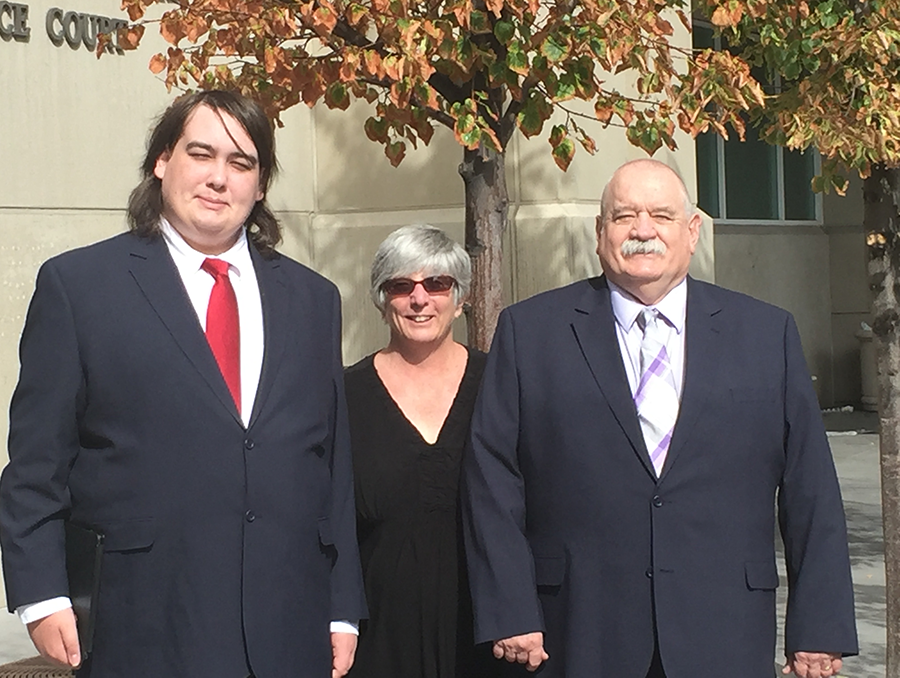University of Nevada: Advancing Mental Health Support Through Education and Family Support Initiatives

In recent years, mental health has become an increasingly pressing issue across the United States, affecting individuals and families from all walks of life. Recognizing the critical importance of mental health services and education, the University of Nevada has taken deliberate steps to enhance support systems and foster community well-being. This article explores the university’s initiatives related to mental health, the role of family support, and the impact of education in creating sustainable solutions for Nevada families and beyond.
Strengthening Mental Health Services at the University of Nevada
The University of Nevada, Reno, has positioned itself as a leader in mental health research, education, and patient care. Through its School of Medicine’s Department of Psychiatry and Behavioral Sciences, the university offers comprehensive training programs aimed at increasing the number of qualified psychiatric professionals. These efforts are vital in addressing the growing demand for mental health services, especially in rural and underserved communities across Northern Nevada.
One noteworthy example of the university’s commitment is the establishment of endowments and funding initiatives that support mental health research and training. For instance, a recent tribute by a mother named Rebecca Carter-Steele, in honor of her son Adam Steele, has resulted in the creation of the Adam Robert Steele Memorial Endowment. This fund is dedicated to expanding access to psychiatric training, research, and compassionate patient care, emphasizing the importance of community-based mental health initiatives.
The Role of Family Support in Mental Health Recovery
Effective mental health care extends beyond clinical treatment, involving active family participation and support. Families often navigate complex, fragmented systems to obtain appropriate care for loved ones facing mental health challenges. The story of Adam Steele illustrates how vital coordinated, compassionate support is for individuals with conditions like autism and schizophrenia.
Adam’s mother, Rebecca, recalls how her family faced systemic hurdles, often managing multiple specialists without adequate communication. Her experience underscores the necessity for systemic improvements in mental health care coordination. Initiatives at the University of Nevada aim to develop mentorship programs connecting experienced parents with those beginning their mental health journey. Such programs serve as vital lifelines, offering guidance, hope, and a sense of community to families overwhelmed by the intricacies of mental health services.
Moreover, the university supports early childhood development programs, recognizing that a strong foundation in education significantly influences mental health outcomes later in life. The Child and Family Research Center at UNR, where Adam attended early care, highlights how quality early education can be transformative, setting children on a path towards resilience and well-being.
Educational Initiatives to Promote Awareness and Reduce Stigma
Education plays a crucial role in changing perceptions and reducing stigma associated with mental health conditions. The University of Nevada dedicates significant resources to raising awareness about mental health issues and promoting inclusive attitudes within the campus and broader community.
Through seminars, workshops, and campaigns, the university encourages open dialogue and knowledge-sharing. These initiatives aim to foster a culture of compassion and belonging, making it easier for individuals and families to seek help without fear of judgment.
In addition to campus programs, the university’s public engagement includes collaborations with local organizations, advocacy groups, and healthcare providers to expand mental health literacy across Nevada. This integrated approach creates a supportive environment where mental health is prioritized as a vital component of overall well-being.
Impacts on Nevada Families and the Broader Community
The university’s efforts have tangible benefits for Nevada families, addressing systemic challenges and providing accessible, quality care and support. The Adam Steele endowment, in particular, exemplifies how personal stories and community action can lead to meaningful change. It funds training programs that improve clinical practices, research initiatives that inform policy, and mentorship systems that empower families.
Furthermore, the university’s focus on mental health within its academic curriculum ensures that future healthcare professionals are well-equipped to meet the evolving needs of the community. Through experiential learning opportunities, students gain valuable insights into patient-centered care, emphasizing empathy and cultural competence.
Community outreach, including partnerships with local schools and social services, extends these benefits beyond campus boundaries—creating a resilient network that supports mental health and family stability across Nevada.
How You Can Support Mental Health and Education Initiatives
Support for mental health programs and education is vital for sustaining progress. Donors and community members are encouraged to contribute to funds like the Adam Robert Steele Memorial Endowment or other university initiatives focused on mental health. These contributions enable the university to expand training opportunities, develop innovative care models, and support families navigating mental health challenges.
Additionally, individuals can participate in awareness campaigns, volunteer with local mental health organizations, or pursue education in mental health fields to contribute directly to community well-being. Building a supportive environment requires collective effort, and every action counts.
Conclusion
The University of Nevada’s dedication to enhancing mental health services, supporting families, and fostering education-based awareness demonstrates a comprehensive approach to addressing one of society’s most pressing issues. Personal stories like Adam Steele’s highlight the profound impact that community-driven initiatives and compassionate care can have. By investing in mental health education and family support, Nevada sets a vital example for how institutions can promote resilience, inclusion, and lasting well-being for all. Learn how you can support these vital programs today and help build a stronger, healthier Nevada community.

